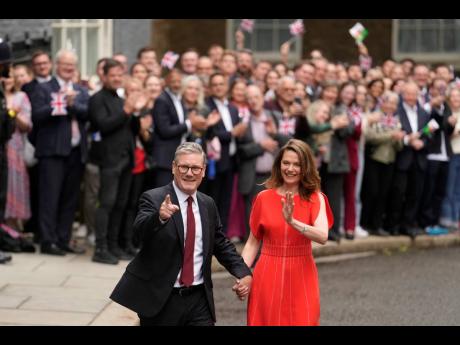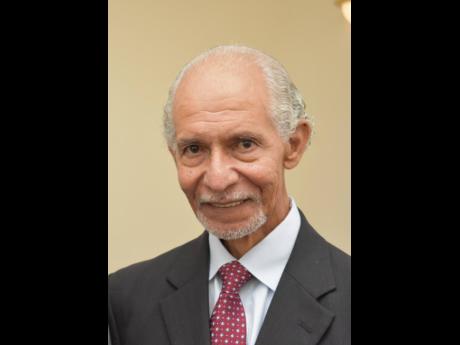Curtis Ward | UK elections and opportunities for CARICOM engagement
Congratulations are in order to UK’s new prime minister, Keir Starmer, on his Labour Party’s resounding victory and to David Lammy on his appointment as UK’s foreign secretary. With the perception of a Labour Party-led UK government being more likely to be receptive of the Commonwealth Caribbean concerns than was the previous Conservative Party government, it would not have been surprising to see CARICOM leaders jumping the line to offer congratulations. Neither would it be surprising to see CARICOM foreign ministers jostling to open communication with Mr Lammy whose heritage is Guyanese. Some, in particular among Guyana’s leadership, already had pre-election engagement with Mr Lammy.
I should caution that while the combination of a UK Labour Party government and a foreign secretary with Caribbean heritage may augur well for CARICOM and the region, this won’t automatically translate into equity and fair treatment for the UK Jamaican and Caribbean Diaspora community. For the past several years, we have seen an increase in discrimination under successive Conservative Party governments, particularly gross discrimination and maltreatment against the Windrush generation and their descendants. And we have seen a significant rise in discrimination against immigration and immigrants, generally, in the UK, not seen since the Enoch Powell era. The UK is experiencing a high level of xenophobia not unlike other European countries and even more so in the Untied States. There will be no waving of the magic wand to change these mindsets overnight, but Mr Starmer’s government can lead by example.
CENTRAL RECURRING THEME
As I have written elsewhere, anti-immigration and anti-immigrants policy is a central recurring theme in the US Republican Party and by Donald Trump and his MAGA movement. Project 2025, a policy developed by the Heritage Foundation, Washington’s premier conservative think-tank, to guide a second Trump presidency, to keep immigrants of colour out of America and for expelling millions who have been accorded some form of humanitarian relief such as those who have been offered temporary protected status (TPS), DACA, and other humanitarian programmes offering hope of permanent residency. Reversal of Biden’s relief to immigrants and Trump’s plans for massive deportation are at the centre of the Project 2025 xenophobic agenda.
Back across the pond, the UK Caribbean Diaspora community is looking for transformational changes by Mr Starmer’s government to the former government’s policies and particularly, for fair treatment for the victims who were affected by the Conservative Party’s harsh Windrush policy. They are expecting a complete reversal of measures implemented against the Windrush generation and their descendants. They are hoping that Mr Starmer’s government will implement the full recommendations of the Wendy Williams’ Windrush Lessons Learned Review (March 2020), much of which were discarded by the previous government. They view the Home Office, where the Windrush scandal began, as an impediment and would prefer to see this issue and related compensation managed by an independent commission. Caribbean governments should support them.
Caribbean governments also have an opportunity to give impetus to their reparation demands for redress of the effects of centuries of slavery, colonisation, and neo-colonisation exploitation.
CARICOM has an opportunity to engage Mr Lammy on these issues as well as on economic and, importantly, climate change resilient capacity building. The devastation in the wake of Hurricane Beryl brings this to the forefront of the agenda. The UK foreign secretary should not be given a pass on any of these issues even if they do not fit squarely into his portfolio. He is a senior member of Mr Starmer’s Cabinet. I suggest that as the UK lead interlocutor with Caribbean leaders, these issues must be a part of bilateral conversations. That is, if CARICOM leaders are serious about statements they all seem to make, from time to time, including about diaspora-engagement priorities. Caribbean leaders often claim that their diaspora engagement includes ensuring the welfare of their diaspora; that they are not discriminated against by the governments of the countries in which they reside.
CONCERN FOR WELFARE
The Government of Jamaica National Diaspora Policy (GOJ-NDP) specifically sets out the GOJ’s concern for the welfare of the Jamaican Diaspora. According to the GOJ, the purpose of the NDP is to establish a framework to implement the GOJ’s two objectives, one of which is to promote diaspora “interests and well-being in the countries where they reside”. We often hear this repeated by the Jamaican portfolio minister and government officials, more often to placate rather than backed by practical application. The NDP states that the GOJ is committed to implementing its diaspora policy “to ensure that its foreign policy and negotiations consider the issues and challenges being faced by the diaspora population that may impede the achievement of their full potential”. The architect of Jamaica’s foreign policy and lead negotiator with Mr Lammy, Kamina Johnson Smith, is also portfolio minister for diaspora affairs.
The UK Labour Party government with Mr Lammy serving as foreign secretary in Mr Starmer’s Cabinet provides a great opportunity for Johnson Smith to engage the UK government on these issues at the highest political level. Hopefully, these entreaties will find a responsive interlocutor in Mr Lammy and the government he represents.
While each Caribbean foreign minister, individually, is obligated to raise these issues when engaging with the UK foreign secretary at the bilateral level, this must also be a collective policy agenda issue for CARICOM and its Council for Foreign and Community Relations (COFCOR), which has responsibility for coordinating CARICOM’s collective foreign policy. Foreign Minister Johnson Smith represents Jamaica on COFCOR, and to ensure credibility of Jamaica’s diaspora policy, she must be proactive in garnering CARICOM-wide support on Caribbean diaspora issues. Many in the diaspora question the integrity of the GOJ implementation of its GDP, and this is an opportunity to shore it up.
Mr Lammy, in his first public statement, identified himself as a descendant of enslaved people. Signalling his priorities, he said, “We begin with a reset with Europe on climate and with the Global South … .” He ended by saying, “Change begins now.”
Curtis Ward is former ambassador of Jamaica to the United Nations, with special responsibility for Security Council affairs. He is an attorney and international consultant on geopolitical and international security issues and is an anti-corruption advocate. Send feedback to columns@gleanerjm.com.


